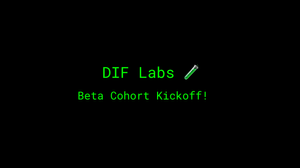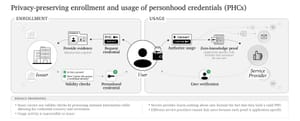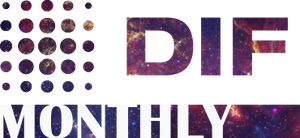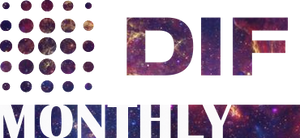The DIF has an active core of startups and dedicated teams at larger corporations known for their swift co-development within the foundation. Over time, this has led to rapid deployment of several useful specifications, reference implementations, and cross-competitor conversations that have solidified a vision of the broadly-interoperable decentralized identity stack. A healthy and diverse market is coming into focus today, due in large part to these efforts.
Limiting participation to dues-paying members proved more of a barrier to entry than expected, however, and it is clear that the paywall to participation limits inclusiveness and community-wide discussion. As both of these are critical components for building a solid and lasting foundation for truly decentralized identity solutions, DIF will be shifting to a more open modus operandi.
Effective 18 June 2020, DIF has opened up participation to all technical working groups for companies under 1000 employees.

Going forward, attendance and substantial participation in all DIF-governed working group meetings, including IPR-protected ones, will be free to join as “contributors” for small- and medium-sized interested parties, with these defined as companies with under 1000 employees. Individual/freelance contributors without relevant IPR obligations to their clients will continue to be eligible to participate for free under appropriate legal agreements. Working Groups co-hosted with other organizations will continue to benefit from community-wide free participation regardless of organization type and size.
More information on how to join here.
Small- and medium-sized enterprises are encouraged to join as DIF full members, which have their logos listed on the site and are highlighted in DIF’s external communications. Other benefits to full membership include programming access to forthcoming special interest groups to guide the formation of industry-focused markets and other non-IPR-protected initiatives within the organization. More information on those initiatives is forthcoming.
The Genealogy of the Grand Opening
DIF was founded over 3 years ago to create a neutral space for co-developing and co-designing the key elements and protocols of a decentralized interoperable identity stack made up of interchangeable parts. Over the years, the member companies and individual contributors to the foundation have helped to raise the profile of decentralized identity on a global scale. Its contribution-first philosophy, pre-competitive cooperation ethos, and professionalism around IPR protection and recordkeeping have allowed it to make many substantial, useful, and agile contributions to various commercial and non-commercial stacks.
The shift really began at IIW28, when Oliver Terbu and Rouven Heck convened a session which produced a useful overview of the decentralized identity stack as a more grokkable whole, seemingly visible on the horizon by the end of 2019. A few months later, Daniel Buchner, then Executive Director, co-wrote an article with Sam Curren addressing the false dichotomy between Microsoft’s Identity Hub design principles and the agent-focused architecture of the Aries community. Were there other mirages making practical interoperability seem further away than it really was?
Then, at the second DIF semi-annual meeting of 2019, traditionally an update meeting where for different workstreams to compare notes and coordinate, executive director Rouven Heck gave a keynote presentation before the updates. He invited DIF’s membership to reflect on how DIF related to adjacent decentralized-identity communities and development organizations. Were we siloing research and risking double-work? How could we bring about greater convergence of the stack, by harmonizing with and optimizing for the work already underway elsewhere?
DIF might not have changed much in the previous six months, but the landscape was changing. The Worldwide Web Consortium (W3C) has finalized the core VC specification and was ramping up to finalize the core DID specification in the coming half-year; what came next? The Hyperledger Foundation’s focus, having restructured and set an ambitious roadmap for interoperability after pushing forward the next iteration of the Indy blockchain at the core of many SSI systems, was getting a lot of attention outside the decentralized identity community with its promises of production-grade systems. If DIF continued on its code-driven, “build it first” trajectory, could we end up competing with, more than complementing, these adjacent projects?
With his quick slideshow presentation, Rouven started socializing and recruiting support for a vision of DIF that did as much coordination as co-development. A key feature of this strategy was identifying cross-community development work that would benefit from IPR protection and DIF infrastructure and inviting communities to come together in the repositories.
The first of these joint efforts was the DIDComm working group, identifying ways to accelerate the interoperability of wallet-to-wallet communications beyond the Indy stack, a working group that is still doing important and influential work to this day, including sending the first draft proposal to the IETF from a DIF WG. More recently, the Secure Data Storage working group has followed the same co-hosting approach, bringing a work item from the W3C community and an under-socialized contribution open-sourced by Microsoft Research together as the two model implementation inputs to what could well prove to be a widely-usable decentralized standard across all compliant stacks and most web-based contemporary topologies.

Conclusion
In 2020, the co-development of the widely-interoperable decentralized identity stack is turning a corner, and now more than ever it feels like we are in a crucial moment for structured and transparent cooperation to pre-empt any enclosure of the Commons. With the widest possible cooperation, we can build unity and grow the market before dividing it up into fiefdoms and brands. DIF is aiming to return to its roots and pitching a bigger tent than ever to make sure we get this right, together.
Stay tuned for more updates about new working groups and new ways to get involved. If you’d like to join as a contributing member, see the signup form here.






